Small Victories
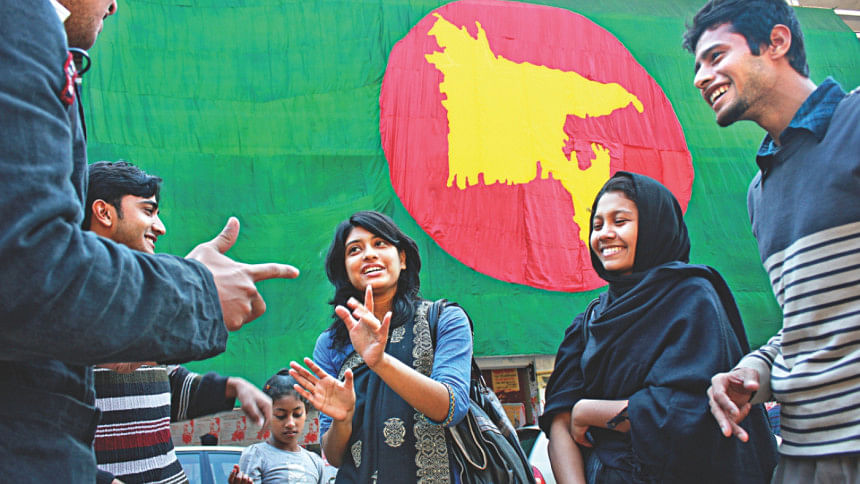
Photos: Kazi Tahsin Agaz Apurbo
The women in this country have seen it all – from becoming state leaders to literally climbing mountains and celebrating summits. As compared to decades ago, women win awards, excel in science and take decisions. However, for the every day woman, conquering the streets of Dhaka, being at the corporate head or simply being a free spirit has always been a difficult task in the country. Instead of viewing her under a single microscope, let's try to appreciate and celebrate the different shades that she showcases in Bangladesh.
It's not uncommon to see young women on the streets – comparing notes, listening to music or simply drinking tea with work friends or class mates. "We come here to relax between classes, but we end up talking about politics, movies, people and books," says Iffat Jahan, a third year student of Business. We catch her drinking chaffi near Dhanmondi 26. As she orders a round of it for everyone, she tries to explain the taste of the concoction of traditional milk tea and coffee powder. "It's like a burst of emotions inside my mouth!" she says. "I think the drink would do better with a little malai (cream)."
The ideal woman is beautiful, intelligent, hard working, studious, has a great job, has children and the best of all – can create a perfect balance between work and home. Let's get real. In Dhaka city, it is almost impossible to get from Point A to Point B without facing traffic congestions and 'VIP on the move' obstacles, even if you have to save your job or shush your wailing child on the phone. How in the world can a woman be expected to be on time everywhere she goes?
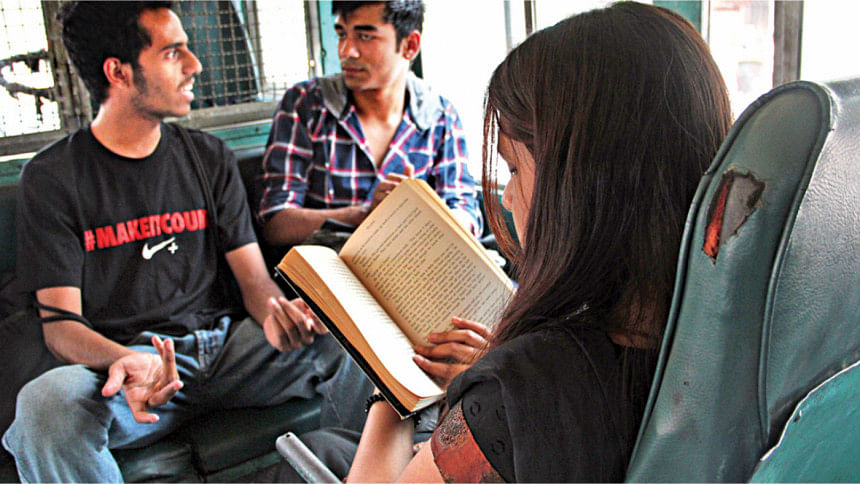
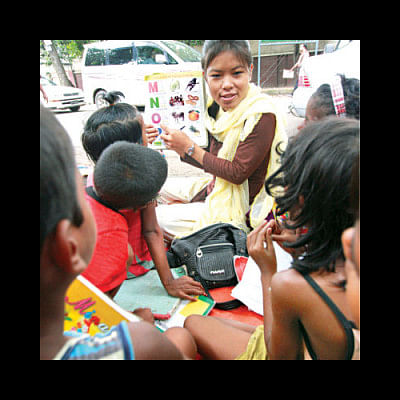
A long journey on the bus towards Gulshan, and you find young students looking for seats. At every stop, the bus gets over crowded and people end up standing and waiting for their destination. 24-year-old medical student Marwa Hossain gets up to offer her seat to an elderly gentleman. "It's the reserved seat for the ladies, I know," Marwa explains to the young female student standing next to her. "But I don't think he will be able to stand on his feet for too long. There are no other seats available." Ignoring the scorns and contempt firing at her from all around, she picks up her book - The Girl on The Train by Paula Hawkins - and continues to read.
Gulshan 2 is a pleasant surprise. An empty footpath, amidst the day-long traffic is occupied. Not by shopkeepers or bikes, but by a school of children reading aloud and writing alphabets. Clearly, the school is especially created for street children and the young woman heading the inquisitive yet mischievous crowd of students had a lot to handle! The children are grouped according to ages and were given worksheets to complete. While that's being done, another group walks up the teacher and recites a poetry in Bangla and then another one in English. People stuck in traffic, on rickshaws an CNG driven auto rickshaws were clearly having a fun time watching the children trying to finish their math problems on time.
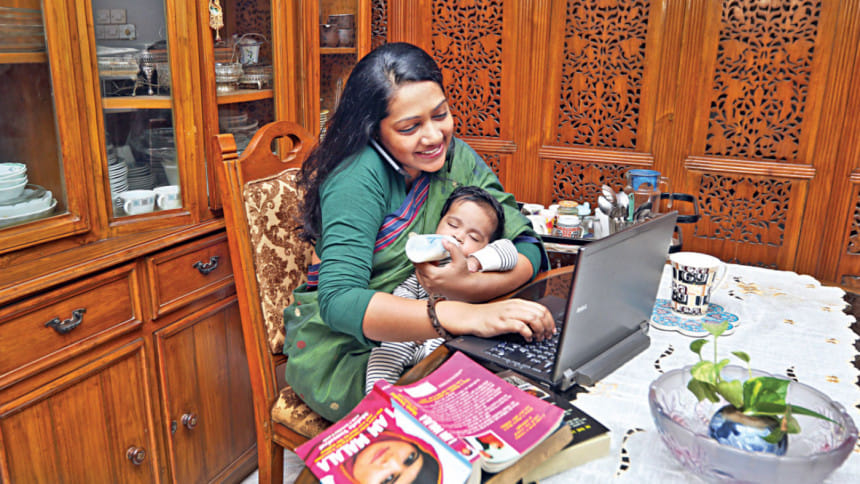
Maha Matin is enjoying motherhood. Managing a 2-month-old for the very first time, Maha is now awake half the time, changing diapers and feeding. "But that does not stop me from doing what I love! This is the only time I can browse, read poetry, eat whatever I want to and shop," she admits. The Centre Manager of Standard Chartered Priority Banking at Gulshan, Maha Matin has always been the top of her game – be it in school, university or her banking career. And to the delight of the thinkers of the nation, Maha plans to strike a balance between work and home – and plans to have her husband do the same!
It's high time to stop categorising women under 'working' and 'not working' and end up judging them. A woman is always working – whether on the streets, educating the street children or at a school, teaching classes professionally. It is also time that we had a Bangla word for the spouse choosing to become stay at home mothers – so that the typical Bangla amaar ma/bou kaaj kore na (my mother/wife does not work) can be shifted to amaar ma ebong bouer kaaj shesh hoy na generally translating to being Homemaker.
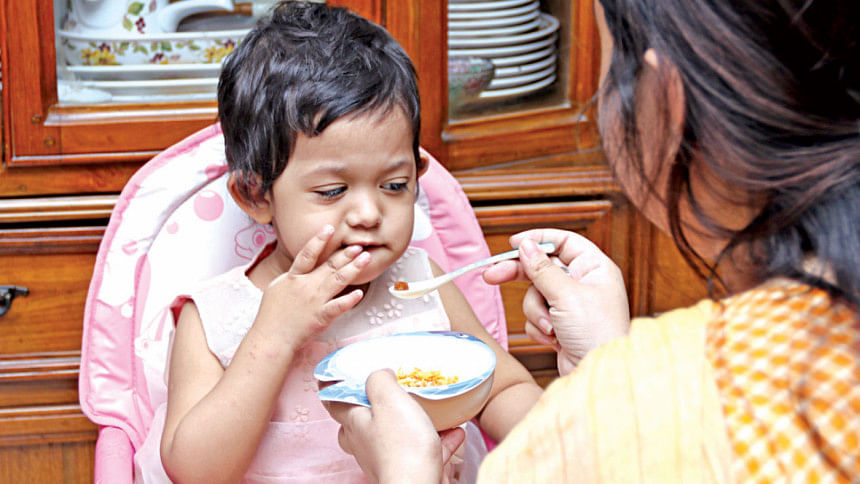

 For all latest news, follow The Daily Star's Google News channel.
For all latest news, follow The Daily Star's Google News channel. 



Comments